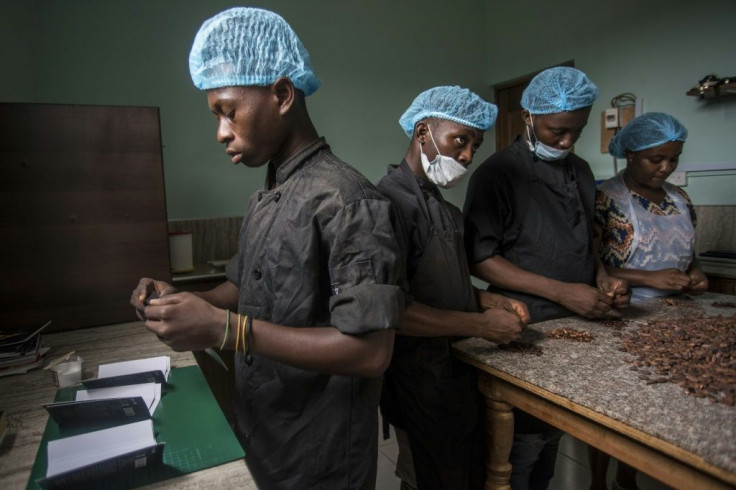Mars And Hershey's Accused Of Avoiding Fair Pay For Cocoa Farmers
Two of the world's largest cocoa producers have accused Hershey's and Mars of avoiding paying a bonus that helps boost poor farmers' incomes, and have cancelled sustainability schemes run by the confectionary giants.
West African nations Ghana and Ivory Coast account for two-thirds of global cocoa production, but there have been long-running tensions with US multinationals over pricing.
The Coffee Cocoa Council (CCC) and the Ghana Cocoa Board (Cocobod) on Monday accused Mars and Hershey's -- two of the world's top chocolate sellers -- of not paying the so-called living income differential (LID).
The LID gives a bonus of $400 per tonne of cocoa in addition to the market price and is intended to better remunerate cocoa farmers, many of whom live in poverty.
But a reported large purchase of cocoa by Hershey's on the US futures market recently "clearly indicates your intention to avoid paying the living differential income", the CCC and Cocobod said in a joint letter.

As a result, the producers said they had "been left with no choice but to cancel all sustainability programmes with which your company is involved".
The schemes certify that the chocolate is ethically produced -- allowing firms to sell it at higher prices. Production must avoid deforestation and be free of child labour.
In a separate statement, the CCC and Cocobod accused Mars of modifying its cocoa butter procurement processes to avoid paying the LID.
The CCC and Cocobord denounced Hershey's and Mars' "breach of confidence" in the scheme designed to help millions of African farmers.
In a statement to AFP, Hershey's said it was "unfortunate" that the countries had decided to "distribute a misleading statement this morning and jeopardise such critical programmes that directly benefit cocoa farmers".
Mars Wrigley denied that it had avoided paying the LID, and said it had long supported the initiative.
© Copyright AFP 2024. All rights reserved.





















